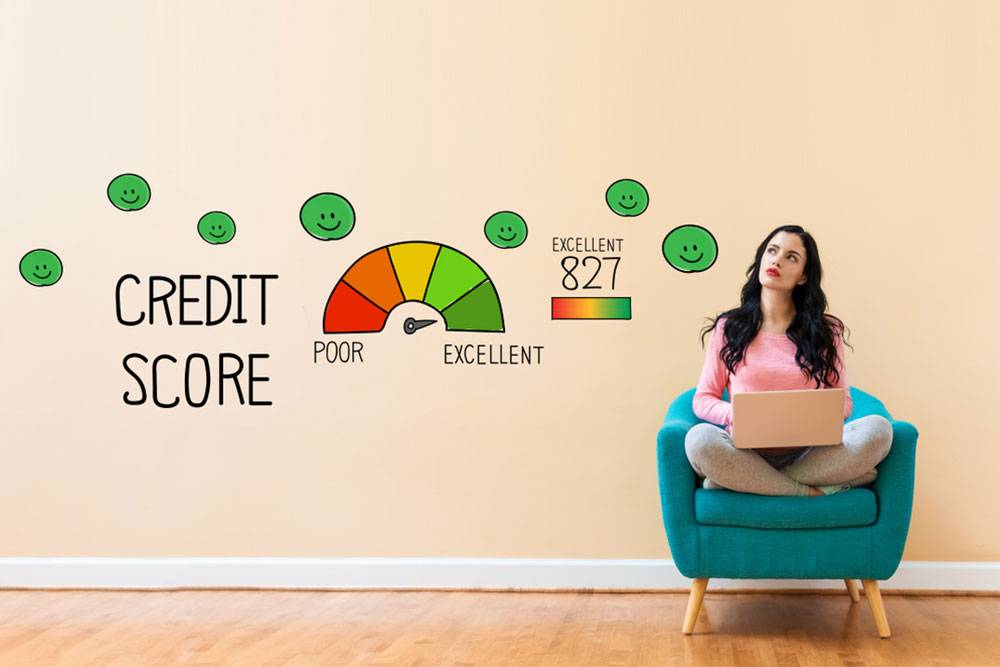It is a fact universally acknowledged, and quite unfortunately so, that women tend to be less financially independent than men. Behind this fact, which is backed by myriads of studies and gender gap reports, lies the underlying problem of lack of financial literacy. A study published in the Journal of Consumer Affairs way back in 2012, for example, highlights how financial illiteracy is more prevalent among women than men—a problem that’s persistently exacerbated by women living longer than men (but having less access to financial education), having short work tenures, lower earnings, and investments and savings by the time they approach retirement.
Clearly, a more than basic understanding of how to manage your finances is the key to overcoming this problem. Financial literacy is the only way to achieve financial confidence, and that’s exactly what needs to go into the making of a truly financially independent woman.
We talked to Dipika Jaikishan, a financial expert and the co-founder of a financial service app for women, about the crucial tips you need to manage key aspects of your finances. Here’s what she recommends every woman should know about the major financial focus areas.

Income and expenses
“While looking for a job, understand market salaries and don’t forget to negotiate,” she says. “The key thing to keep in mind here is that it’s not okay to settle for a pay you are not comfortable with, as this can impact your financial growth over the next several years.” Another thing you need to know at the very outset is how much income tax you are liable to pay, since this will directly affect how much in-hand income you’re actually earning.
You also need to understand how your personal cash outflows work. Jaikishan says that you need to focus on the following areas:
• Track your fixed monthly expenses like rent, utilities, food, and outstanding EMIs. Deduct this amount from your monthly income and think about optimising the remaining amount.
• Understand the investment options available to you and start investing your money from your very first pay cheque. Delay this, and you’re likely to come up shorter than your target by the end of the year.
• Always set aside money for an emergency fund, which should typically be worth three to six months’ expenses (a calculation you can easily do if you track your monthly expenses). Keep this emergency fund in an accessible account, like your savings account, so that you can withdraw it in case of unprecedented monetary crises.
While many tend to focus on the long term, you need to look at your near future too. Do you have any large expenses or major life events (such as marriage, moving cities, planning a baby) coming soon? If yes, then start setting apart an amount for them too.

Spending and saving
Save before you spend, says the time-tested money hack. Unnecessary spending, especially on things you don’t really need, inevitably leads to overspending or spending using credit – both of which can turn into nightmares in very short spans of time, Jaikishan says. “You should ideally put away your savings and investments right when you receive your pay cheque,” she states, adding that planning your budget is a simple exercise you need to engage in every month.
“If you’re new to planning your budget, we’d recommend you start with the simple cookie jar method. When you get your salary, the first thing to do is to divide it into separate jars as per your needs, expenses, emergencies, investments, savings and even charity.” Jaikishan recommends the following way these jars can be divided:
• 50 per cent for essential expenses such as rent, food, utilities and other basic requirements for your day-to-day living.
• 30 per cent for the future, meaning your savings and investments. You must not touch this amount once it’s allotted, and stick to it diligently for your own sake.
• 10 per cent for your emergency fund, because you don’t want to be unpleasantly surprised by the unexpected turns life has to offer.
• Five per cent to indulge in your favourites. The amount may seem small, but it’s better to indulge wisely rather than get stuck in the vicious loop of overspending and debts.
• Five per cent for charity, because it’s good to share when you have it, and may help with your taxes too.
You can definitely tweak these cookie jars according to your personal requirements, but do adopt them to get into the habit of saving and sticking to commitments made about spending. The cookie jar system works, Jaikishan says, because it helps you visualize and mentally divide your income, and it helps build discipline, which helps you stick to budgets and maintain financial stability.

Credit scores
Credit scores, which range from 300 to 900, indicate your worthiness of getting a loan or credit card. Jaikishan points out that most banks and non-banking financial corporations (NBFCs) have a minimum eligibility score of 750 for loans. In fact, 79 per cent of loans are sanctioned to people with a score higher than 750.
“Women in India are increasingly becoming aware of the advantages of good credit scores, and getting more credit-worthy,” Jaikishan says. “The average credit score of millennial women borrowers in India is 734, a number considerably higher than their male counterparts, whose average score is 726.” A high credit score can help you achieve the following when you apply for any type of credit:
• Favourable interest rates on loans you may apply for, for example, home loans, car loans, etc.
• A higher credit limit, which can help you borrow more when in need.
• A favourable repayment tenure.
• Faster approval and disbursement of loans.
Jaikishan says that you need to start building your credit score as soon as you can. “Getting a credit card and using it wisely is a great way to build a good credit score,” she adds.
Personal loans
Unlike other types of loans, personal loans can be trickier to handle, which is why Jaikishan recommends you only take it when there are no other options available. “Personal loans carry higher interest rates, require no collateral as security, and their payment defaults can quickly pile up to form an insurmountable debt, Jaikishan states. “However, personal loans can be very handy in times of financial deficit or emergency situations, like sudden hospitalisation. This is even truer for Indian women, as they tend to earn less, spend more on medical expenses, and yet receive less insurance protection over time. So, while we would not advise you to avail a personal loan for any odd reason, you may take the risk when absolutely necessary and there is no other option for that extra cash flow.”

Retirement: Focus begins now!
“Given the gender pay gap, the career breaks, and a higher life expectancy, women—reports suggest—must save almost double the amount men do to be able to afford a similar retired life. Therefore, planning for your retirement from the moment you start earning is absolutely vital for women,” says Jaikishan. There are three things you need to do, in order to ensure a secured retirement:
• Be mindful of your finances today, especially where unnecessary spending is concerned.
• Educate yourself so that you can meet your financial needs consistently and overcome crises throughout your life.
• Take ownership of your finances today.
Now if you’re wondering what this last point means, Jaikishan explains that “owning your finances does not simply mean having the ability to spend, but also having the forethought and vision to plan or invest it. Whether you want to travel or go live in a comfortable den for retirement, your money is the fuel you need.”
She suggests that you ask yourself, ‘Who is the boss of my finances?’, and if the answer is anything but ‘Me’, then you need to take charge of your finances immediately. And, if you want to start planning your retirement right now, then you could try calculating the funds you’ll need at that age. There are many tools that can help you calculate your retirement corpus by filling inputs of your basic life requirements along with when you think you’d like to retire. Once you’ve set these goals, you can start putting a fund together using the cookie jar method, and secure your retirement fund accordingly.